Graham Reid | | 24 min read
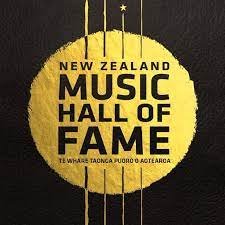
There's a circularity about Annie Crummer, Dianne Swann, Margaret Urlich, Kim Willoughby and Debbie Harwood being inducted as legacy artists at this year's Aotearoa Music Awards.
As the group When the Cat's Away in the late Eighties they enjoyed hits, tours, music awards, a best selling live album and an award-winning documentary.
But as Urlich told the Listener in January 1990, “There was life before Cat's Away, there's life during Cat's Away and there'll be life after Cat's Away”.
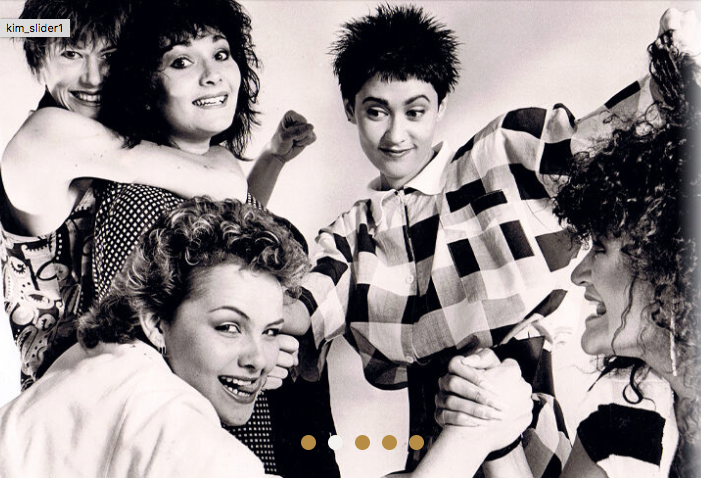 And it's for their diverse, individual careers – before and after Cat's Away – these five remarkable women are being celebrated.
And it's for their diverse, individual careers – before and after Cat's Away – these five remarkable women are being celebrated.
Four of them came together at the '85 Music Awards for a Listener article on women in rock: Swann – the singer/songwriter in Everything That Flies – had been nominated for Most Promising Female Vocalist (the band for Most Promising Group), a category won by Harwood; Crummer's soulful voice elevated Netherworld Dancing Toys' For Today which won Single of the Year (and which also featured Harwood); Urlich of Peking Man won Best Female Vocalist.
Here were distinct talents which, with Willoughby, would become When The Cat's Away, girls just wanting to have fun as sisters doing it for themselves.
They won Entertainer of the Year and Group of the Year in 89, capturing the post-punk zeitgeist when more women were leading bands and had solo careers.
Swann quit Cat's Away in '91 to pursue a career in Britain with the acclaimed Julie Dolphin, has been hailed back home with the Bads and this year released The War On Peace of Mind, her debut solo album after 35 years in music.
During Cat's Away, Urlich signed to CBS for a solo career which took her to Australia; Crummer signed as a solo artist to Warners. Both released well-received, big-selling albums.
Harwood had come from music promotion and tour management, returned to that, then marriage and motherhood; Willoughby took a similar path. Both maintained performing careers.
These women artists separately, and together, changed New Zealand culture and our music industry.
Check out this Spotify playlist of their work
Interviews and overviews of their careers continue below the image
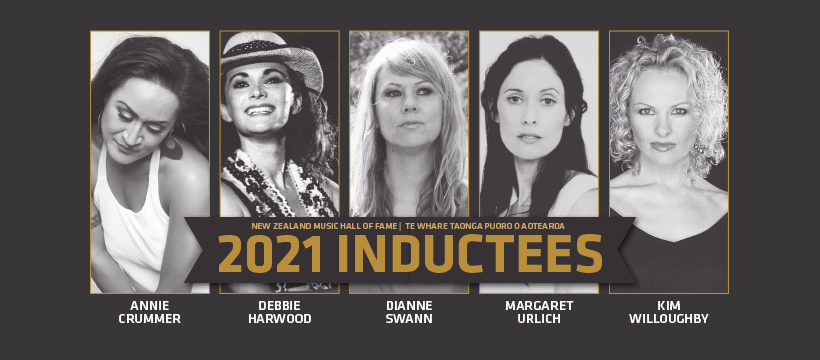
.
KIM WILLOUGHBY
Our phone call catches her at home on a beautiful day in the Waikato doing . . . ?
I've been redecorating my lounge, some of the wallpaper was peeling off and so I have diligently taken to it with a Stanley knife and got it all off.
First of all congratulations, I like the fact that you are all being inducted as individuals not the collective because you are all very different people anyway and had careers before and after When the Cat's Away.
So that's what I'd like to talk to you about: your career. As I sit here I am looking at your picture on the back of the Gurlz EP. [Willoughby's first band]. Do you have a copy? Did you keep scrapbooks of your career?
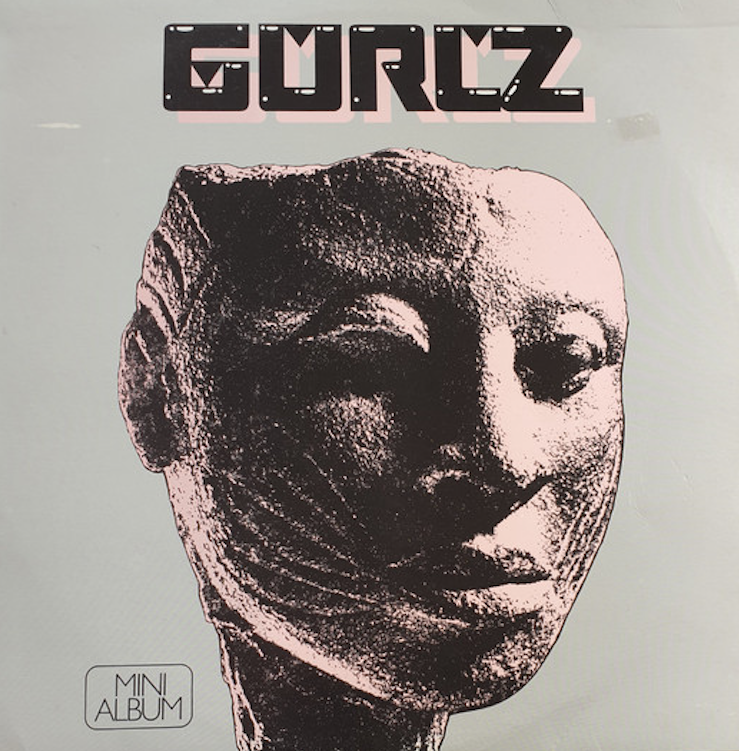 I do have one. I have a five friends from primary school and one of them lived with me in the Eighties and Nineties and I was pretty blasé about things back then and she said one day, 'You should really keep these newspaper cuttings and appearances on TV.' So I have a quite a box of all kinds of things, I'm glad I listened to that good advice.
I do have one. I have a five friends from primary school and one of them lived with me in the Eighties and Nineties and I was pretty blasé about things back then and she said one day, 'You should really keep these newspaper cuttings and appearances on TV.' So I have a quite a box of all kinds of things, I'm glad I listened to that good advice.
What I learned interviewing bands is there's always one person in the group who is the archivist, or somebody's mum. You just need to find that person.
Let me talk to you about how I see you in this group of women being inducted: They are very much singers, as of course you are, but your career prior to Cat's Away was very much in a broader entertainment area with dancing and singing, then on TV and of course the film Queen City Rocker.
Is that how you would see yourself, you were much more diverse in your career before Cat's Away than the other women?
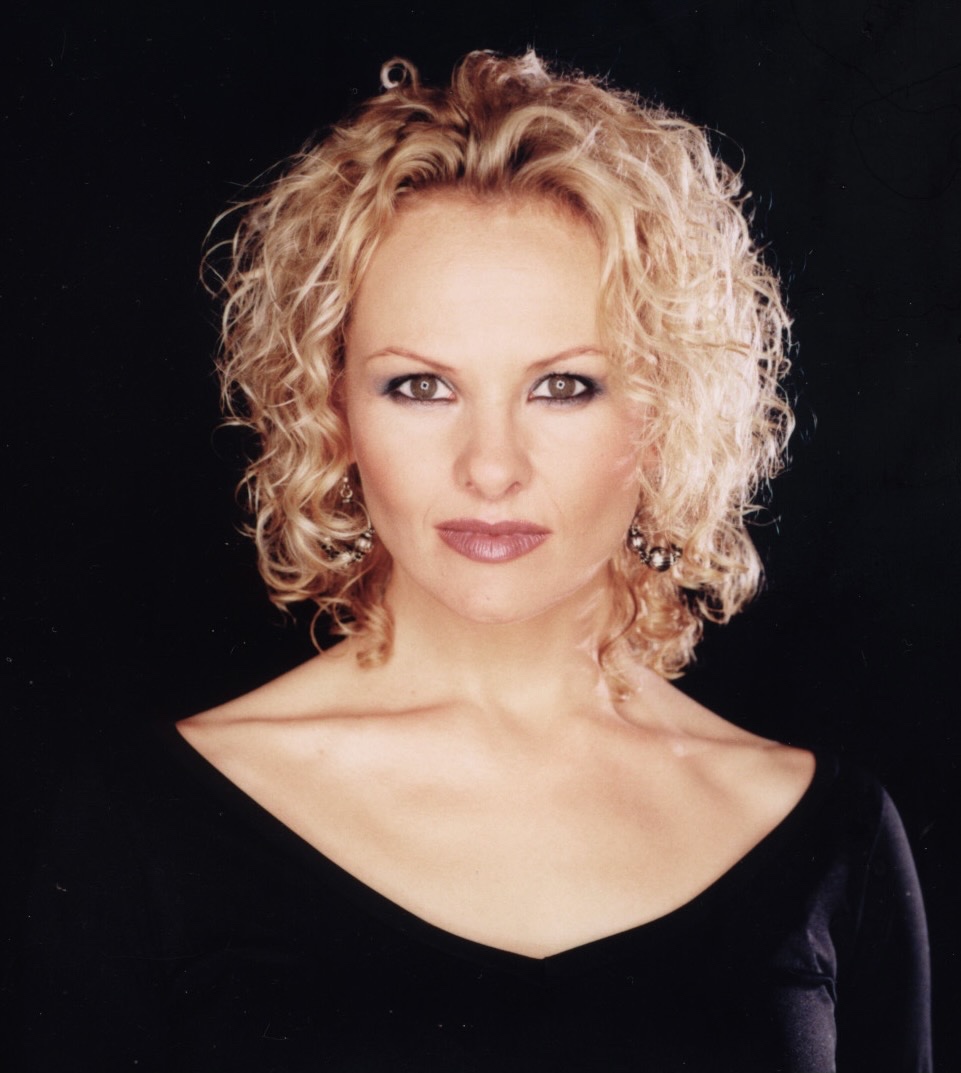 I think so and the way that came about was quite unusual because I was going along minding my own business and then people started asking me if I wanted to do these things, so I would just say 'Yes'.
I think so and the way that came about was quite unusual because I was going along minding my own business and then people started asking me if I wanted to do these things, so I would just say 'Yes'.
And then the phone would ring and someone would ask me to do something different again, so, 'Yes, why not?.
That went on for some time and that's why I had an eclectic career.
What is your best memory of Gurlz and how that came about?
I was working at the Diagnostic Laboratory on Symonds St [in Auckland] and my flatmates were all on the dole and thought, 'I suppose we better start a band'. They asked if I wanted to be the guitarist. I said I couldn't play guitar and they said don't worry about that, just get one.
So I bought a guitar and started to learn but I didn't enjoy it, didn't love it. I learned Louie Louie and Wild Thing – the same three chords – and didn't get much further than that.
Then they said, “do you want to be the singer?' So, 'yeah, okay' and then we won The Battle of the Bands.
Was that at the Town Hall?
No, that was at Mainstreet. The punks down the front weren't happy and booed and threw stuff at us when we won.
Of course they would, they would have done that to just about anyone.
Tell me about the Billy T James Show. That must have been quite exciting for a young girl, suddenly you are on TV with famous people. Is that how you saw it?
No, I just kind of took it in my stride. I think I was too young and too dumb to be nervous. I didn't know enough to be nervous, they hired me as a dancer and an actor and I'd had no training.
If I tried to do that these days I'd be shitting myself, but back then I didn't know enough to think that maybe I couldn't do it!
What did you like about doing that show.
It was a lot of fun and Billy was such an amazing person to be around and often I find at this stage of my life as I look back I don't think I appreciated it for what it was, I was just going along following my nose and enjoying my life doing really fun work with people I enjoyed. In hindsight I appreciate the value of those experiences. And to live my life that way was incredible.
And Billy was such a generous person to be around. I've told this story before but I always felt he was like an uncle to me. Very respectful and kind.
It wasn't until not too many years ago when I read his biography and found out my dad had been in his band in the early days, no one had thought to tell me. Maybe that's why I felt Billy was like an uncle. I was on the show for that one season.
Did you enjoy TV?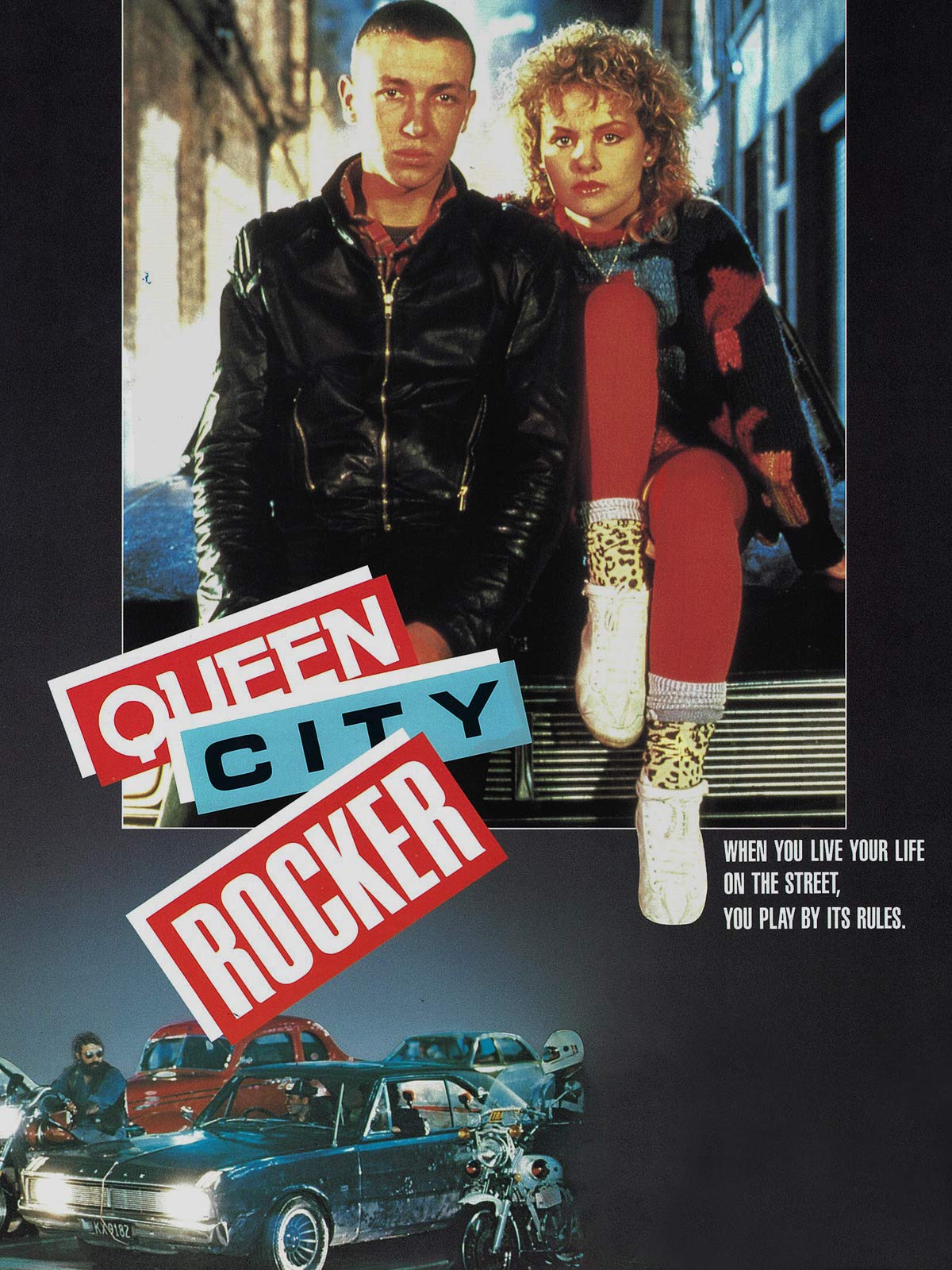 I did, I enjoyed the atmosphere and the process, you are very in-the-moment, especially live television and I enjoyed that.
I did, I enjoyed the atmosphere and the process, you are very in-the-moment, especially live television and I enjoyed that.
Were you recognised in the street?
Not then, not until after [the Cat's Away hit] Melting Pot, that changed everything.
Queen City Rocker, you seem to be a natural for that. Was the a leap of faith by you?
I think so, the director Bruce Morrison offered me that job. He directed the Gurlz video for Out of Bounds. He offered me the job and all I had to do was go along and make sure I had some kind of chemistry with [lead actor] Matthew Hunter. We ran a scene and Bruce said, “Yep, that looks like pretty good acting to me” and away we went.
The soundtrack was pretty brilliant. And I got to go to Canada and America to do promotion for that and while in America I attended the premier of Withnail and I and Paul Newman was there . I got to look at him!
You got to look into Paul Newman's eyes?
I did!
You must have had other movie offers. I'm aware of The Quiet Earth offer which you weren't keen on. Were there other offers though?
No. When I said no to that movie no one ever asked me again. I really did not want to do The Quiet Earth.
You don't regret that decision?
[long pause] . . . Ahh, no.
You regret that no more opportunities came but the decision was the right one.
Yeah.
But anyway at that point the singing came back with Annie and then with Cat's Away. That was a helluva ride.
Oh yes! And I want to thank you for that question you sent me to consider because I consider it a gift and it's been so lovely spending time thinking about the best and happiest times of my career.
I realised I had never done that before. I enjoyed thinking about that so much I'm going to make it a habit in other areas of my life.
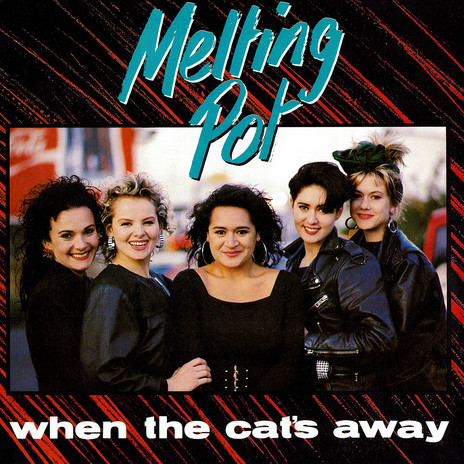 Good, so let me ask you that question I sent so you could think it through: Can you recall a moment in your career when you felt utterly happy and fulfilled?
Good, so let me ask you that question I sent so you could think it through: Can you recall a moment in your career when you felt utterly happy and fulfilled?
There have been so many but I've chosen two.
The first one was a gig on Waiheke on the Cat's Away Paradise tour and it was stunning summer day and we all went over on the ferry together and the harbour was just sparkling and gorgeous.
We had a great band and they were cooking and I was singing Blerta's Come Dance All Around the World which I love for its enchantment and whimsy, and I later found out it was based on a kids' book by Margaret Mahy.
There's a bit at the end after the spoken word part and the women doing the backing vocals we'd rewritten – and just the beauty and clarity – it was quite high. And this surge of pure joy went through me.
It was almost like a spiritual thing, life-affirming, and people were having such a good time and I was finding the song easy to sing. It was like being borne along on a beautiful wave and it gave me goosebumps, even thinking about it today I got goosy again.
You said you had two?
The other one I hope you find funny. It might have been on the Melting Pot tour and Dianne did a beautiful thing where she started this thing were we'd get on the bus in the morning and everybody, including the driver, would sing a person's name with a song which reflected their personality. So if it wasn't you they'd pass the word then sing it when you got on.
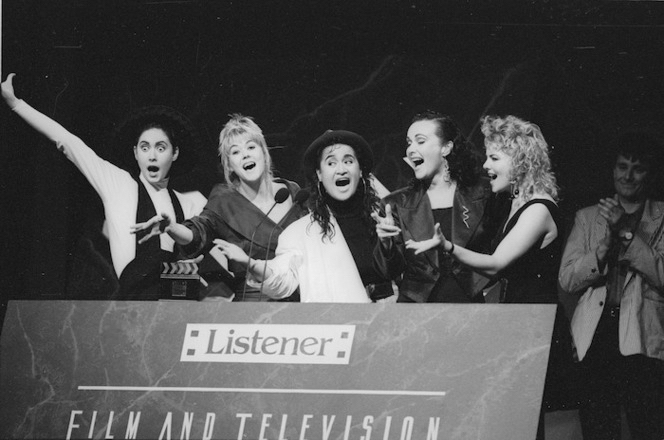 The day came when it was my turn and they started singing 'Kiiiim Willoughby' (to the tune of the Coronation Street theme) and I thought Coronation Street? I was quite disappointed!
The day came when it was my turn and they started singing 'Kiiiim Willoughby' (to the tune of the Coronation Street theme) and I thought Coronation Street? I was quite disappointed!
But then I came to appreciate it and started to picture myself in the Rover's Return having a shandy with Ena Sharples.
It was good time but all good times come to end. Your life changed very quickly when you married [musician/producer] Ian Morris and had twins, and your own boy was still very young.
Yes, he was three when the girls were born. They say it's character-building but how much character building does one woman need!
At that point you had been busy for a decade. Were you glad to step away?
Yes. Actually no! I was glad to be at home with my babies. But I missed the camaraderie, just the things like all the boys in the band trying to outdo each other telling the best joke, that kind of thing. And sometimes when people would come to the house and Ian had done a track and they were singing and laughing I'd be scrubbing crap off mattresses. I had moments when I missed that.
You have come back into doing things.
I had, except Covid . . . After Ian died [in 2010] I was not well for a while and just couldn't work. I didn't have the heart to sing. Then the last few years I felt like going back to work again, but my confidence had taken a big knock.
It took a lot of courage to get back on the horse but I've got my Bandaleros, my lovely boys, and we'd only done a handful of gigs and then Covid hit.
When it's all over would you been keen to get out there again?
Oh, I am desperate to get back to work, I need it. If they'll have me. I'm not as confident as I used to be.
But I think my voice is better than it has ever been. I used to have a girly, squeaky voice and now its matured. The timbre is rounder and softer and more nuanced.
And that allows you to sing different songs, more adult songs requiring that nuance.
Yeah, and because I'm a grown-up now as well!
What songs to the Bandaleros play?
We do a whole bunch of my favourite pop and rock songs, some Americana, The Ballad of Billy Joe, I'm a big fan of Bonnie Raitt so some of hers . . . just crowd-pleasers because one of my strengths as an entertainer is to give people a good time. And I love seeing their happy smiling faces.
You are an entertainer. I'm reading a book by Paul McCartney, a collection of his lyrics, and he tell anecdotes all the way through. He's in no doubt about why he is standing on that stage, he's up there to make people feel good.
I get that, that is what it has always been about for me and I am so interested in not only the energy exchange between musicians in a band but also that energy exchange between the performers and the audience. It's a profound and powerful life-affirming thing with endorphins and how it stimulates your immune system when you feel good.
I've got more questions than answers about that.
That's the eternal mystery.
I can't wait to come up and celebrate with everyone because I haven't seen some people in the longest time. It's going to be quite an amazing opportunity to reconnect and have a knees-up. It's just what we all need.
It's the best thing that has happened to me for a long time.
.
DIANNE SWANN
At home in West Auckland Dianne Swann drops a bit of a bombshell.
I'm recovering from concussion, months of it. If you're going to have a concussion, lockdown is the best time to have one. I was out running and Waitakere township has uneven footpaths, I tripped and bashed the left side of my head on the concrete.
I found after I just couldn't handle a lot noise, like the neighbourhood power tools.
Congratulations, this is a legacy award. Do you feel like 'a legacy artist'?
We had to have zoom call with about this! My answer was, 'I don't mind being historical but I don't want to be history'. I feel as though I've kept trucking.
On the one hand I'm delighted but on the other . . .
Well, I believe you had an album out recently!
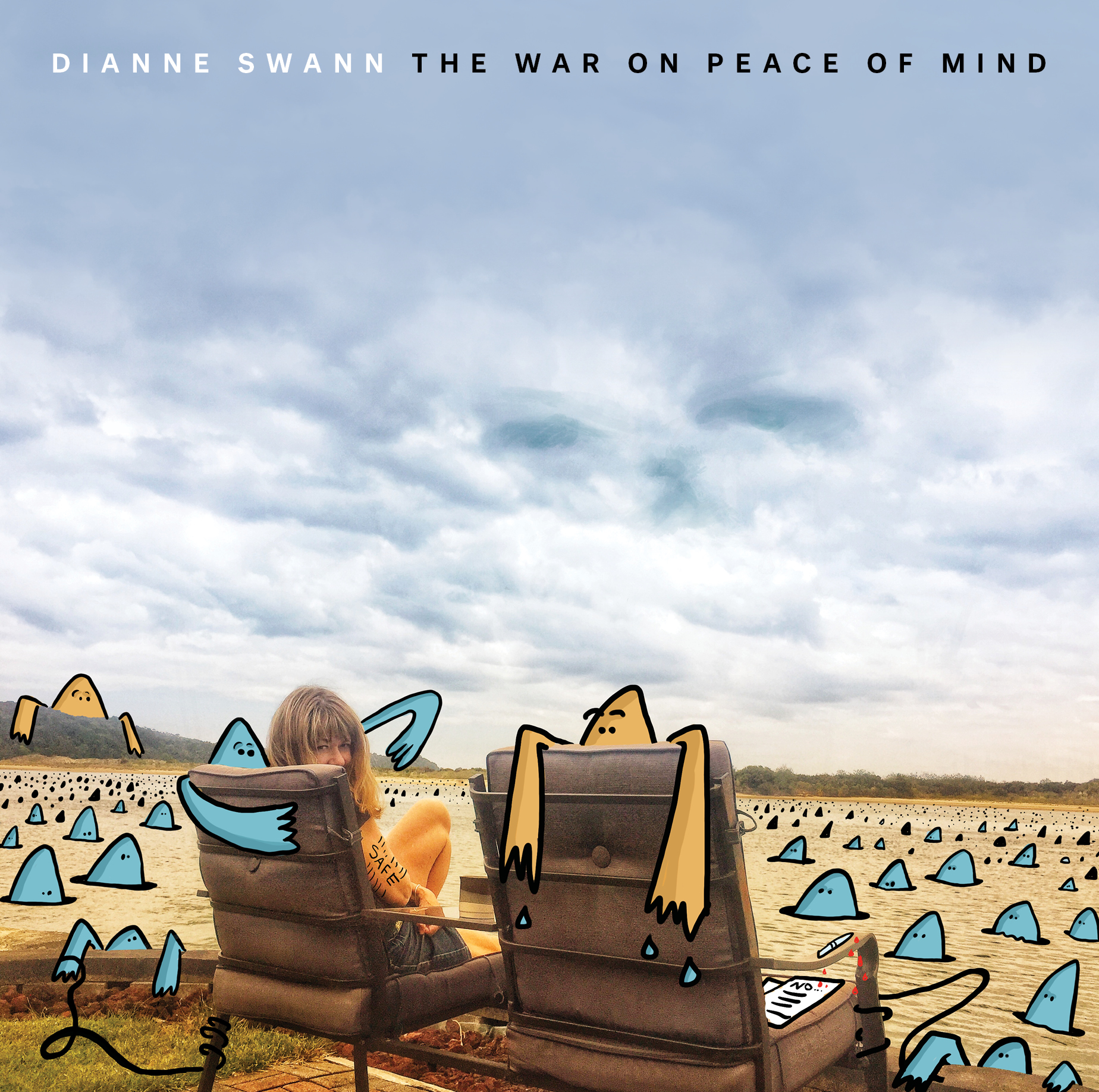 [laughs] Oh, have you heard it?
[laughs] Oh, have you heard it?
[Elsewhere did a major interview with Swann about her lengthy career and the album The War on Peace of Mind when it was released.]
When you were seduced into Cat's Away were you aware of what you might have to give up to be part of it?
There was nothing more than it would be a few gigs and a few laughs because we put it together ourselves and we just chatted and thought it would be fun outside of our own bands. We had no idea it was going to be the behemoth that it was.
Was there a moment when it all took off and your realised it was bigger than you thought?
The very first gig we played at the Gluepot, we did the soundcheck then rolled up for the gig and the queue went right round the block and back to the front door again.
We were shocked, it was jammed right from the start. I think we had one gig where it wasn't so much but from there on it every year we would go up a tier as far as venue size, and no matter where we went it was always jammed.
Was it fun?
Yeah, mostly. My memories will be different to Kim and Debbie and Annie because I left, so their memories will be of more recent stuff. When it stopped being fun for me I left.
One of the great things was it was just bloody hilarious. We had costume changes, most of the costumes we made ourselves, stuff we found in shops and put together. There was a lot of humour involved, so much fun.
When it got a little bit more cabaret and serious . . . But we made money and that money afforded me the chance to write my own songs and work on my own music. But after a while it was, 'I got to get out of here and see if I can do it' kind of thing.
Can you recall a moment in whatever part of your creative career when you felt utterly fulfilled and happy?
I can recall many which makes me feel very lucky. It feels as though I've got several. It's such a hard question.
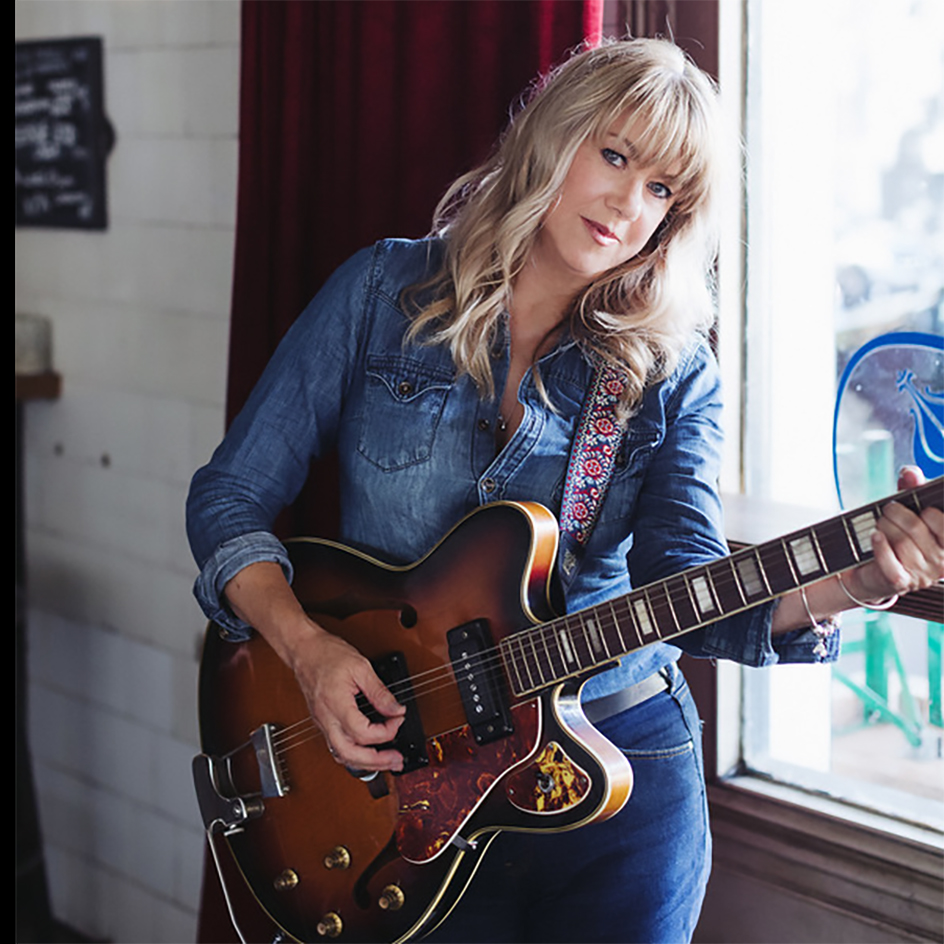 Getting the mixes through from Steve Powell in the UK for my solo album. Recording the album was an enjoyable process but getting mixes that Steve in the UK had done who had gone through Covid and then started sending the mixes through . . . and he was thanking me for letting him mix my record!
Getting the mixes through from Steve Powell in the UK for my solo album. Recording the album was an enjoyable process but getting mixes that Steve in the UK had done who had gone through Covid and then started sending the mixes through . . . and he was thanking me for letting him mix my record!
Just the transformation of his ears and attention on my songs was just the best feeling. I was at home sitting in front of the computer with my headphones on and every morning I'd go to the computer and he'd sent me a message that there was mix in my inbox.
I suppose to some degree it was a little bit of validation that this top producer, who could do anything he wanted to, was working with me . . . for nothing.
You made an extraordinary album, do you feel validated in this country?
No. The other thing I was going to say was, the second one ties in with what you've said because we were invited by Marty Stuart to go and play on one of his big concerts at the Ryman Auditorium in Nashville and we played with his band to their audience on a line-up with Chris Stapelton and others. The warmth that came back from that was astounding. That was an incredible moment.
Ever felt anything close to that in this country?
No. But two other moments then: two recent times, playing at the Civic Theatre and doing [Neil Young's] Helpless – which was one of my first songs I ever loved -- and having Liam Finn, Jon Toogood, Sam Flynn Scott doing my backing vocals. That song in that theatre was amazing.
 The other one was when Shayne Carter asked me to pay tribute to Andrew Brough and do Down in Splendour at the Town Hall at the Flying Nun 40thanniversary this year. I feel that was an astounding moment.
The other one was when Shayne Carter asked me to pay tribute to Andrew Brough and do Down in Splendour at the Town Hall at the Flying Nun 40thanniversary this year. I feel that was an astounding moment.
I didn't know Andrew, I only took a few records with me to the UK and Melt was one of them and I just love Straitjacket Fits, one of my favourite bands of all time and that Shayne asked me – out of all the people in the whole world -- to do that. It wasn't a matey thing and it just came out of the blue.
Those things are all in my mind as beautiful moments, and there are moments of Cat's Away. But they are in the distant past.
I'm very happy the ones that spring to mind are more recent.
And the award night?
I will be there with bells on. If it's a celebration of every single person that is wonderful, everyone has had such incredible careers and they are all so very talented in such different direction. We are all very different and perhaps that's why it worked.
We all had to choose certain number of songs each so each of us brought in something different which meant we had wide appeal: REM and mixing that with Michael Jackson, and music where we met in the middle, Prince being the main one.
If I didn't love things at the start I learned to sing harmonies, and to be flung into that bubbly colourful world was kind of overwhelming.
.
DEBBIE HARWOOD
Congratulations on an award which acknowledges your long career. All of the women in Cat's Away had quite distinctive and separate backgrounds, everyone was a singer but I put it to Kim that she was more of an all-round entertainer (rock band, TV, film etc).
You too were a singer before Cat's Away, but also brought specific organizational skills from your time in radio and advertising. Would that be true say? As a person you are organised and an organiser?
I’m not organised in an admin, tidy, bossy kind of way. I just have enormous energy for the passion of music and was born with a mind for minutiae and solutions – critical stuff for the nebulous world of music. I never leave a stone unturned.
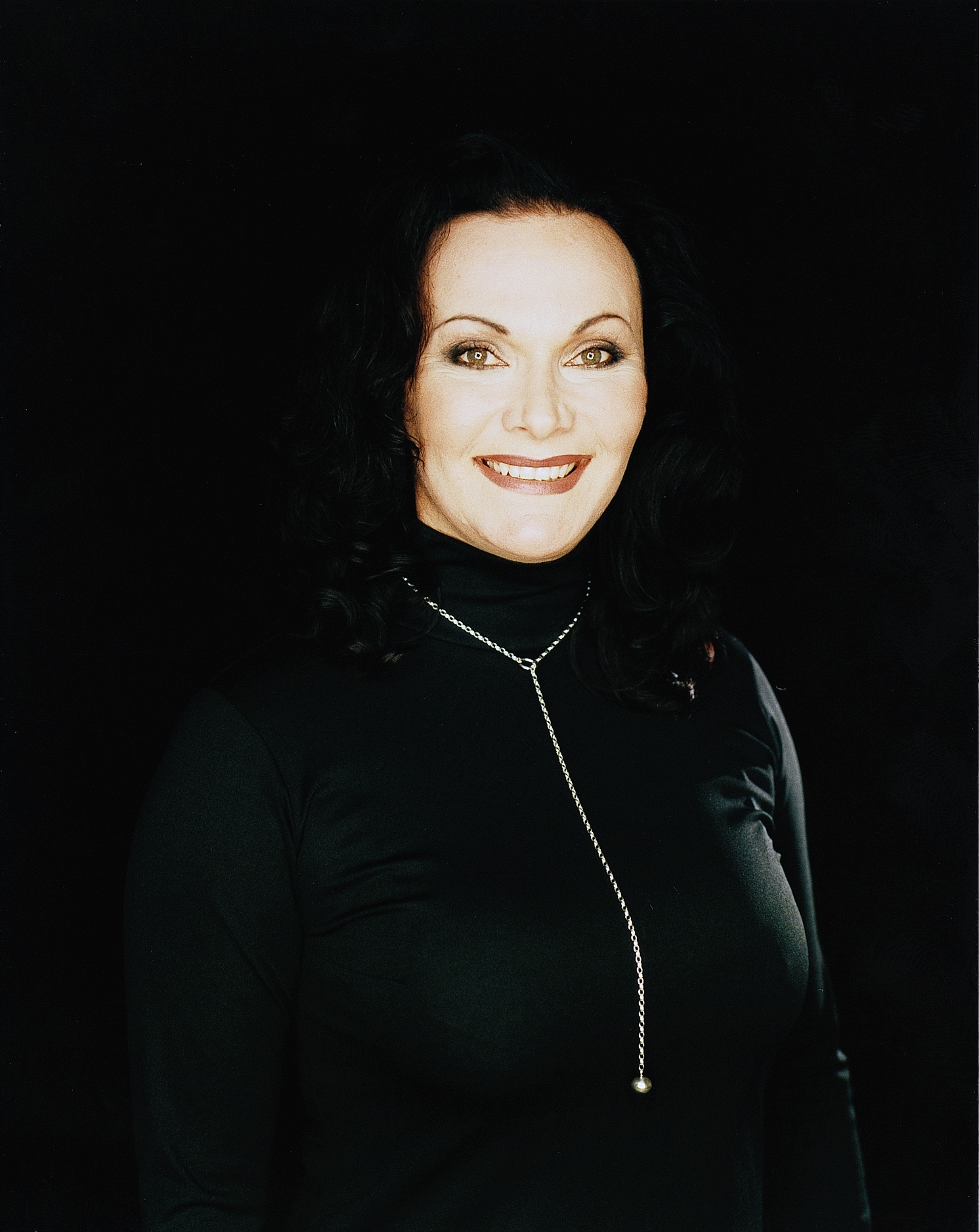 That bounces out of creative ideas that I have – I seem to have a good balance of right and left brain and my grey matter whirrs extremely fast (probably why some of my forebears burnt out badly, mentally).
That bounces out of creative ideas that I have – I seem to have a good balance of right and left brain and my grey matter whirrs extremely fast (probably why some of my forebears burnt out badly, mentally).
But, truth be told, there was no-one else to hand the ideas over to.
It was easier for me to do it than to lead and coach someone else. I also think that when the vision is yours half the battle is trying to get others to understand it.
I got it and we all seemed to have the same innate unspoken grasp of it – whatever ‘it’ was. Definitely heart and soul driven.
Contrary to what most people think, there was nothing contrived about our individual or collective paths. It felt like magic back then. I just knew how to run with the ball.
We all had been singing and making music for many years before Cat's Away as individuals, but when we converged our similarities were very apparent. We were all very working class and had all ‘roughed’ it in order to pursue music. There was a grittiness there. All very self-reliant and living on our wits to make music.
There was nothing frivolous about that pursuit which is possibly why the success of Cat's Away irked some people a little.
You came to Auckland with the intention of continuing your singing career but ended up in Mushroom and did management and touring. At that time did you miss being on a stage?
I’m actually a very private and quiet person. Have never been one to barge on in. Music was strong in me but attention-seeking wasn’t.
My nature is to help others first so it’s been really difficult for me being this ill – I have to come first now but it sits very awkwardly in me.
Before Cat's Away I had been singing for a few years three nights a week in Hawke’s Bay. Our band would support the big touring acts and I would jump up with Lip Service when they came through - sing a few songs.
It was Rooda who said ‘Get your arse to Auckland’ so I duly did. But, I’d come from Taradale – tiny town. Auckland had traffic lights!
I needed to get to know how the business worked up here before I stepped into where I wanted to be and I needed a job. So I worked at Harlequin Studios and met Mike Chunn. I loved the work and meeting what I call the ‘soul group’ of musicians – only about 100 back then.
I worked to survive but the core driver was music.
You made quite a spectacular comeback to performance when If That'll Make You Happy won you Most Promising Female Vocalist. You had further success and could have continued that solo path but . . . Cat's Away!
Did you have to think carefully about putting aside the solo career for Cat's Away or did you just want to enjoy the whole Cat's concept?
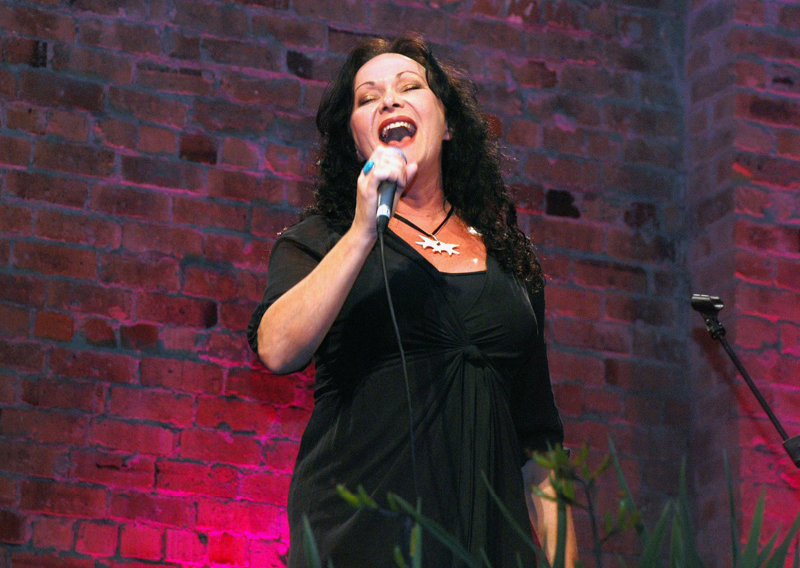 Well spotted! In Cat's Away our understanding was always that the solo careers came first, that Cat's Away was a temporary light-hearted break from the exhaustion of slogging our way around NZ in Bedford vans, performing original music, not getting airplay, making no money year in and year out.
Well spotted! In Cat's Away our understanding was always that the solo careers came first, that Cat's Away was a temporary light-hearted break from the exhaustion of slogging our way around NZ in Bedford vans, performing original music, not getting airplay, making no money year in and year out.
One weekend it was to be – let's have a sing with the gals! We loved the bands we were in but it was so nice to spend some time with other women.
For most of us we were the only female in our environment, women were still anomalous in music.
We expected no-one to come to our Cat's Away shows. If you could conjure up that kind of success everyone would be doing it. The common Cat's Away catch-cry that ‘they did it for money’ is so off the mark.
We had no idea that it was going to be too big to handle. We tried repeatedly to put the brakes on and pull the focus back to our solo, original bands but the roar of those crowds drowned us out.
Margaret was swept up into Australia by Sony, Dianne went to England, I went to Melbourne and a big part of that was to have a rest from the frenzy.
We chose not to record because Cat's Away we weren’t a recording band, our singles were all recorded to support a tour only.
I found that the public from that moment on wanted more than one of us – they wanted Cat's Away – and it’s still like that now. I know that until I drop the last song on my setlist will be Melting Pot.
It is a great paradox. Cat's Away gave us prominence but it also stigmatised us to a degree. No original, solo recording will ever trump Melting Pot in the public’s eyes.
I can feel sad about that but as I’ve aged I've learned to accept the love for Cat's Away.
We had no idea it was going to be that way.
As with Kim, you put your career on hold for marriage [to Rikki Morris] and motherhood? Any regrets at that time? Anything you missed?
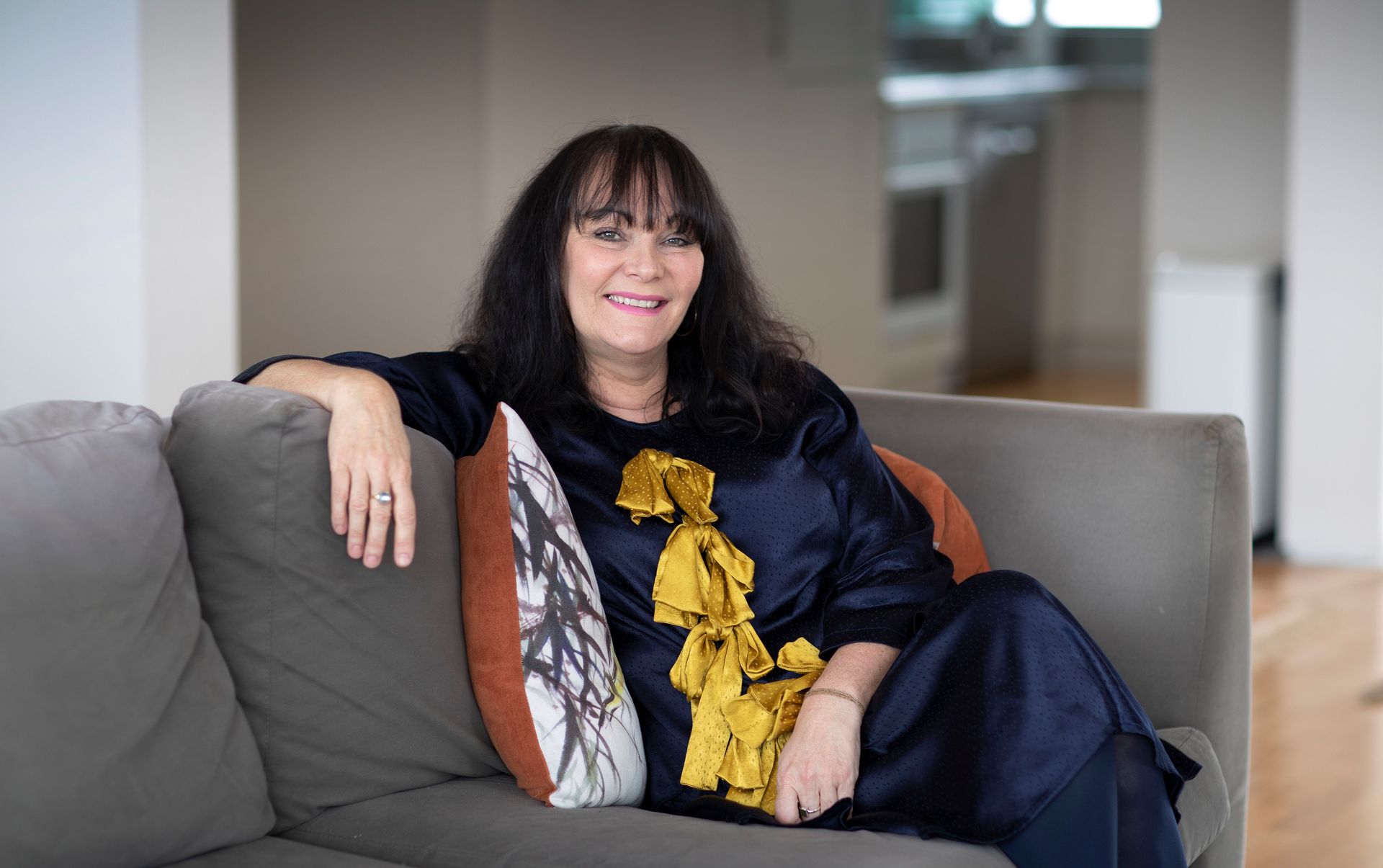 Ooooh no … I never stopped for one second. I was singing three weeks before I gave birth to Marlon and was back on stage three weeks later. The show always must go on.
Ooooh no … I never stopped for one second. I was singing three weeks before I gave birth to Marlon and was back on stage three weeks later. The show always must go on.
Rikki and I had one of the busiest bands in New Zealand when our children were young. With them all day and up all night performing. Needless to say I suffered terrible post-natal depression because of the sleep deprivation.
We were gigging on average three nights a week, plus I was managing Rikki’s career.
We went to Melbourne when Marlon was five months old and I was on the road with Jimmy Barnes two months later. We had to survive. There’s no money in record contracts, promotion, recording, sales, TV appearances or career logistics. So someone had to earn a crust.
[Rikki and I] gigged together right through two break-ups and well out the other side, established The Bus Recording Studios in Devonport and worked every day in there together for many, many years recording thousands of songs.
I eventually formed my own band 16 years ago, The Band of Gold, and we were incredibly busy right up until my heart failure moment in 2017.
There was never a stop for me. At that point we had so many big shows booked (mostly with Annie, Margie, Sharon O'Neill and sometimes Shona Laing).
Plus as a solo mum I had to take everything offered which was when the radio shows, Uni lecturing, mentoring, proof-reading, flower shop work, singing lessons, washing women’s feet and gigging were all happening.
Ha! It’s almost as if my heart failure was a ‘For god’s sake stop Debbie!’ moment.
Was there a moment in your creative life when you felt utterly happy and fulfilled.
I adore my Band of Gold and we have a gig booked for March. We (Hello Sailor, Jordan Luck’s band, me with the Band of Gold and Hammond Gamble) have done the same gig every year for 30 years – on the first Friday of December (postponed until March because of Covid).
It started on the Kestrel ferry in Auckland with the PA tied to the poles and drinks surfing from one side of the wooden floor to the other, then onto the catamarans – starts at midday and goes until 9.30pm – constant, loud rock'n'roll, open bar, a pile of insurance brokers who generally prefer the ham on the bone upstairs to the dark arts depravity downstairs . . .
But we love it and still do.
Every year there have been markers – the liver transplants, the heart failures, the shenanigans, the lost and found – but mostly the hugs, love, respect and joy of performing for each other and with each other.
All those mouths and beautiful sweaty faces pushed together around the magic that is a microphone. Savouring each other’s music and hearts.
Joy lies there for me . . . but conversely, walking onto the boat and missing comrades (Dave McArtney then Graham Brazier) is utterly devastating.
Music is a world with the full gamut of emotions that’s for sure.
You always wrote original songs with a view to recording an album. Covid has put a lot of things on hold but when the time comes again will you be out performing with Band of Gold again (my favourite Freda Payne song incidentally) or doing that long awaited album?
I performed original material right up until Cat's Away (seven years) and had three record deals fall through like some kind of black comedy. My inability to self-promote hindered me my whole life hence the gathering of other musicians around me.
When I was very ill I was slammed with massive regret around not pushing harder to record my songs.
I remember Michael Gudinski standing side-stage at the Mission in 2006 punching the air when I was in full throttle and when Cat's Away came off stage he grabbed me and said, ‘Why did you promote everyone else Debbie? I’ve known you since 1982 and not once did you hustle for a deal. I had no idea you could sing like that. I would have signed you up!’.
So, near-death experiences are a bloody nuisance when they throw major regrets in your face when you’re already struggling to breathe!
I decided then to record some of my own songs and I did in 2019. The EP is called The Sun … out on all the platforms!
But, of course, I’ve written more – it’s an insatiable beast that is never satisfied. At 61 I know I have so much more in there but whether they materialise is another thing.
I make a point of telling my children and (especially) the Harwood nieces, to fight our genetic pre-disposition of putting ourselves last.
It might be too late for me but hopefully they can mutate that pesky wee gene.
Covid was just an extension of what I was living with anyway. I was isolated and unable to move much so the only change I noticed was that no-one was knocking on my door. [laughs]
I plot out tours and gigs in my mind constantly but whether my body will join the parade I’m not sure.
I’m definitely walking onto that boat in March though!
.
ANNIE CRUMMER
Annie Crummer – who unfortunately didn't make herself available for this article – had a decade in entertainment before Cat's Away, singing in malls, performing in nightclubs and having a top 20 single (Once or Twice) at 15.
Her flexible voice lead to singing jingles but she became immediately identifiable for her singular contribution on For Today.
The Cat's Away however diverted her.
 “It wasn't meant to get out of hand like it has,” she told the Listener in '90, “but you can't abuse the success of it”.
“It wasn't meant to get out of hand like it has,” she told the Listener in '90, “but you can't abuse the success of it”.
Signed as a solo artist to Warners, she delivered her debut album Language in '92 which Nick Bollinger included in his 100 Essential New Zealand Albums, describing Crummer as “the Pacific's queen of soul”.
With the hit single See What Love Can Do, Crummer became one of the country's most identifiable voices and stage presences, radiating her joyous personality and love of performing.
She appeared on Shortland Street, opened for Ray Charles, Michael Jackson, Sting and Paul McCartney, and performed at a private function for Quincy Jones.
Her second album The Seventh Wave in '97 further explored her Cook Island heritage, Crummer co-writing nine of the 11 songs and mixing the album at Prince's Paisley Park studio in Minneapolis.
She moved into musical theatre in Australia (Rent, the Queen show We Will Rock You for which she recorded Another One Bites the Dust with the band's Roger Taylor and Brian May), and was part of the Maori Television series Songs from the Inside working with prisoners.
Next year she represents New Zealand at the Dubai Expo.
Crummer has long been a role model for aspiring artists, as far back as '86 telling the Listener, “I have heaps of kids coming up to me and saying, 'Annie, I want to sing' and I encourage them, I really want to. I want them to go for it.”
.
MARGARET URLICH
Margaret Urlich – not available to talk and unable to attend the AMA – is the embodiment of her quote about life before, during and after the Cat's Away.
Peking Man enjoyed early success, signed to CBS and Room That Echoes topped the singles charts in late '85. After the equally popular single Good Luck to You their self-titled album appeared and at the '86 music awards the band took home five trophies (and three more for best production, engineer and cover art).
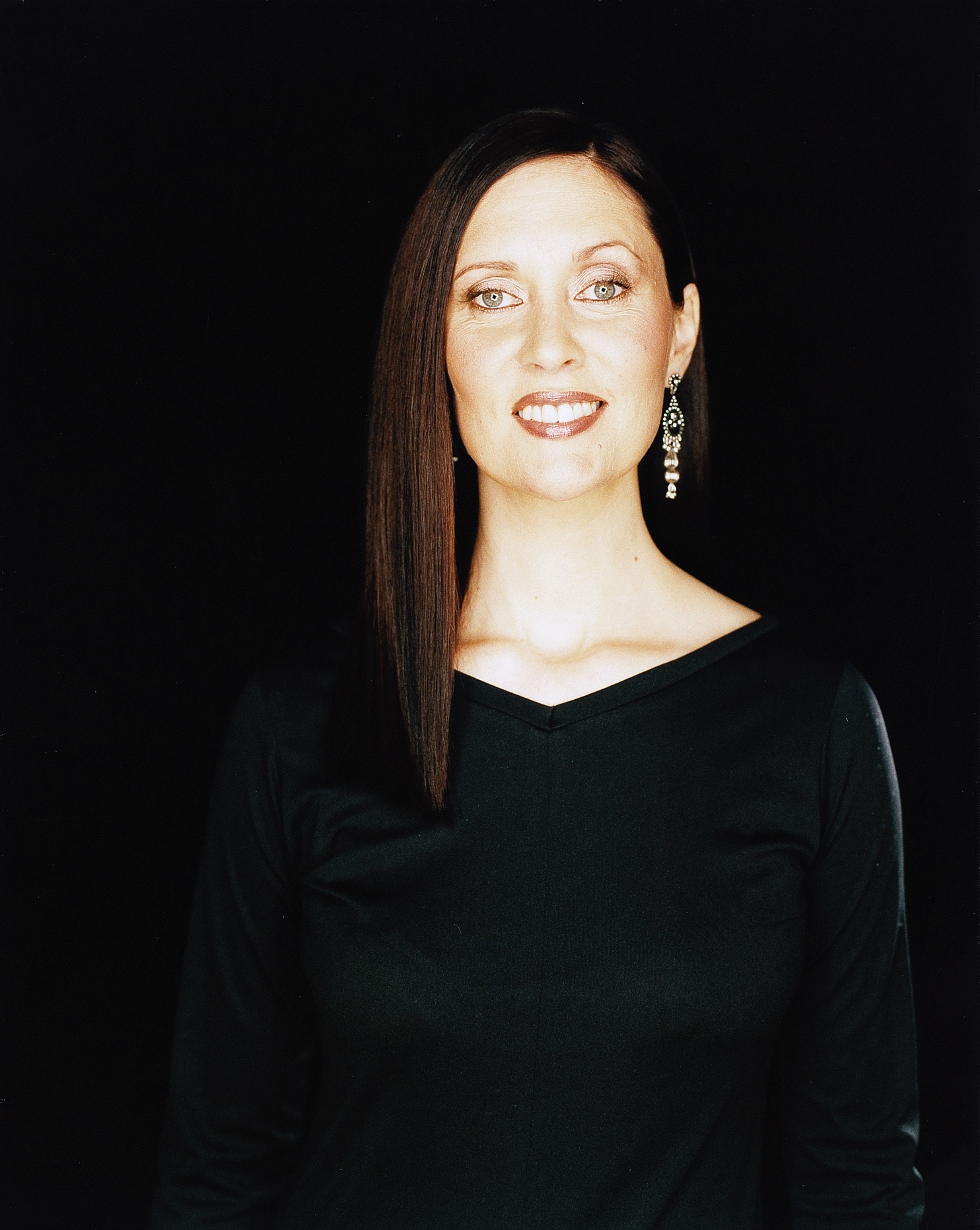 Cat's Away happened as Urlich embarked on a solo career. She moved to Sydney and released her big selling solo album Safety in Numbers: “She called it that because she’d come from the bosom of Cat's Away and was suddenly alone,” says Harwood.
Cat's Away happened as Urlich embarked on a solo career. She moved to Sydney and released her big selling solo album Safety in Numbers: “She called it that because she’d come from the bosom of Cat's Away and was suddenly alone,” says Harwood.
The single Escaping topped the charts here and at the '89 music awards she picked up Album and Single of the Year and Best Female Vocalist, in addition to Best Group with Cat's Away. In Australia she won Best Breakthrough Artist.
She toured in Australia (Swann joining her as a backing vocalist), a follow-up album (Chameleon Dreams), a live album then The Deepest Blue, all sold well . . . but with diminishing returns both sides of the Tasman.
An artist increasingly writing her own songs but enmeshed in a world of business, Urlich – married with children – became frustrated and unhappy. Out of her Australian contract she recorded Second Nature, an album of classic Kiwi songs, again successful here.
In 2001 she joined the Cat's Away reunion tour – Sharon O'Neill as guest in place of Swann -- which recorded the Live in Paradise album for Harwood's Peach Records label.
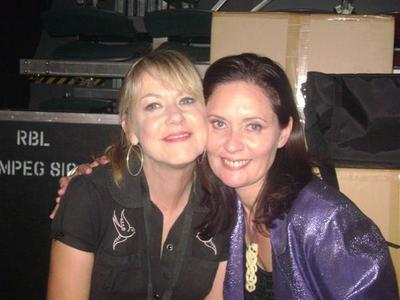 “At the start of Cat's Away, Margaret came to my Devonport flat,” recalls Dianne Swann wistfully.
“At the start of Cat's Away, Margaret came to my Devonport flat,” recalls Dianne Swann wistfully.
“We sat on my kitchen bench singing every song on Joni Mitchell's Blue album, just on our own, no instruments.
“It was the most beautiful, pure moment of friendship.”
.
The Aotearoa Music Awards 2021 will be broadcast live on TVNZ 2 and TVNZ On Demand from Auckland's Aotea Centre on Friday December 17

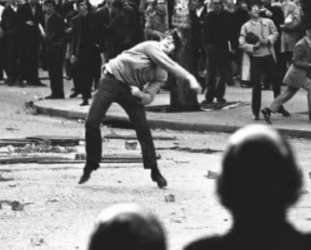
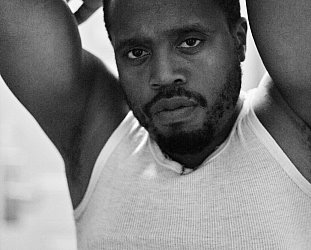
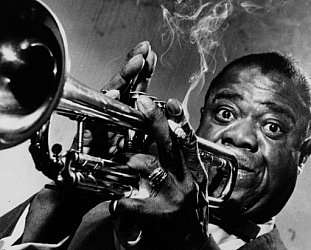
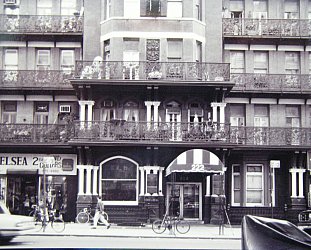
post a comment